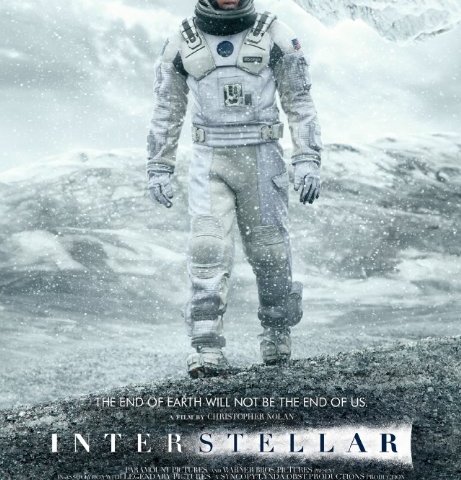“Mankind was born on Earth. It was never meant to die here.”—Cooper from “Interstellar.” While most movies can easily be categorized as dramas, comedies, or science fiction pieces, Christopher Nolan’s “Interstellar” transcends categorization while transcending time and space. A mind-blowing experience filled to the brim with astrophysics, this scientific phenomenon is a must-see for any self-respecting scientist or engineer.
“Interstellar” features a dystopian future where food is a scarcity and the land is plagued by life-threatening dust storms. While the exact year that this movie takes place is unclear, the new world has a much smaller human population and such an absolute focus on food and survival that science, exploration, and engineering are strongly discouraged. Protagonist Cooper (Matthew McConaughey) is an unsatisfied farmer who yearns for the thrill and excitement of scientific discovery. When Cooper and his daughter Murph “accidentally” discover a compound for NASA, which has secretly been allowed to continue aeronautical exploration, Cooper is faced with the decision of following his dreams to journey through space to save the human race, or being the father that his daughter Murph and son Tom need him to be.
As Cooper follows his heart into the world of space exploration, he discovers more than he originally bargained for. The challenge for the small group of courageous astronauts is to travel through a wormhole to find a hospitable planet for the human race. However, the journey is instantly plagued by time warps, a rocky relationship with his fellow traveler Amelia Brand (Anne Hathaway), and the physical and mental strain of hurtling through space. While the movie is not 100% scientifically accurate, it is based upon the theory that some of the unexplained objects in our universe may be portals to other universes, commonly referred to as wormholes. Time is very relative for “Interstellar”, and this assumption is based on the science surrounding Einstein’s Theory of Relativity and its potential for time travel.
Director Christopher Nolan worked closely with astrophysicist Kip Thorne from the California Institute of Technology to integrate theoretical physics concepts into the movie as well as portray the imagery based upon current scientific findings. While much of the science in the movie is probably beyond the average movie viewer, “Interstellar” serves as a societal catalyst, challenging the audience to consider the infinite possibilities that may lie just beyond our universe.
Although the movie is filled with everything from the science of five dimensions to the calculus of space travel, “Interstellar” is ultimately a movie about what it means to be human. The robots of the future—named TARS and CASE—are sophisticated pieces of machinery that can interact with characters, control a spacecraft, and even have a sense of humor and social discretion. However, through their shortcomings, the robots reveal what makes being human so special: the ability to adapt, to survive, and to love. The movie also examines the evolutionary desires of human beings and the implications for the human race. Is it possible to ignore the desire to protect your children? To live without a shred of human interaction? To ever sever emotional ties and make a completely objective decision?
The entire course of the movie is also guided by one man’s promise to his little girl that he will come home one day and the resulting father-daughter relationship that unfolds between Cooper and Murph over the years. From hearing Murph’s cries as her father drives away from their farm, to watching the space transmissions as the years go by, this special bond tears at the heartstrings of any viewer. As Dr. Brand (Michael Caine) of NASA says in the movie, “Love is the one thing that transcends time and space.”
While 30 minutes could have easily been eliminated from this three-hour movie without a loss of emotional or scientific impact, “Interstellar” remains overall one of the best films of 2014. Scientifically inspiring yet equally emotionally riveting, this aeronautical adventure will pull viewers into a black hole and challenge them to think far beyond this universe in more ways than one.


'Interstellar Movie Review: A Black Hole Experience' has no comments
Be the first to comment this post!